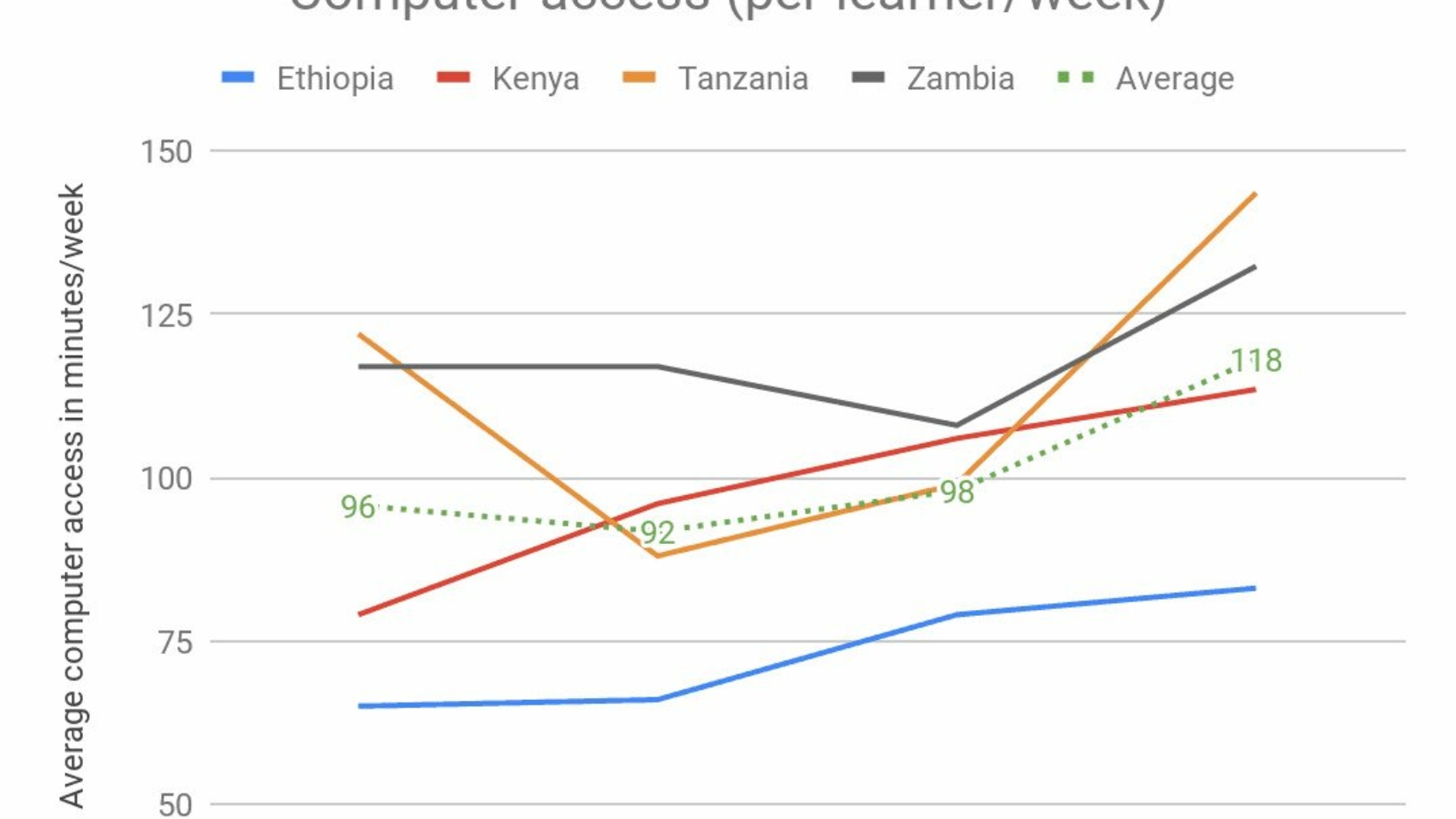2017 Impact & Learning Outcomes
In 2017, Camara Education worked with 1,595 Educational Institutions, trained 7,199 educators and installed over 14,287 computers in Ethiopia, Kenya, Lesotho, Tanzania, Zambia and Ireland. In the process, 434,234 learners had access to computers and useful educational materials for their studies. In order to have a closer look at the impact of our activities, Camara Education conducts an annual Monitoring & Evaluation exercise. This exercise has proven to be vital in informing our program design, highlighting our strengths and weaknesses, evaluating the effectiveness of our approach and promoting accountability of resources used and outcomes achieved.
This year, our monitoring and evaluation exercise was conducted in schools that received computers and training from Camara Education in 2017. A sample of 80 schools from Ethiopia, Lesotho, Kenya, Tanzania and Zambia were randomly selected for the survey. Highlights of the main findings including length of computer access by learners, perception of educators and learners on the training, hardware and educational content provided by Camara Education are presented in the following sections.

Computer access by learners
In 2017, the average timetabled computer access by learners was 118 minutes per learner per week. This shows a 21% increase from 2016 and 29% increase from 2015. The longest access is reported from Tanzania with an average access time of 114 minutes per week per learner. This high level of usage from Tanzania can be related to the fact that 47% of the interviewed learners are in secondary level with higher level of computer usage than primary level learners. Reported access figures from Ethiopia have been shorter compared to other hubs for the past four years. This is mainly due to learners in Ethiopia accessing the computer labs outside teaching time rather than using the computers during their lessons.
Capacity building for Educators
Camara Education trained 7,199 educators in 2017 alone on topics ranging from ICT Skillbuilder for Educators to 21st Century Leadership Programme. All training programmes share a common objective of integrating ICT in teaching and learning to improve quality of education. According to the results of the survey, 62% of Camara Education trained educators reported using computers to deliver presentations for learners, 57% higher than the non Camara Education educators. More Camara Education trained educators also reported using the computers to teach basic computers skills and help demonstrate lessons in their classrooms. The data, in general, indicate that the training provided by Camara Education has a positive impact in helping educators use the available technology for teaching and learning.


Hardware
In terms of quality and reliability of computers provided to the schools, 84% of educators reported the computers have been reliable to use. This is 6% increase from the figure reported in 2016 reflecting an improvement in the reliability of the computers to schools.
Educational content
There are different educational software Camara Education instals on computers provided to schools depending on the local context and need. The software cover subjects including Maths, Science, literacy, ICT skills, Geography and History subjects. The results of our survey show that 89% of the surveyed educators believe these software are relevant to the learning needs of their learners, a 9% increase from what was reported in 2016. One of the reasons for increase in satisfaction rate is addition, in 2017, of software with localised educational contents in Ethiopia.


Camara Education's Performace
The perception of school principals on the performance of Camara Education hubs is measured using a performance scorecard. Ten key performance areas identified by school principals are scored and aggregated to generate an overall performance score for each Education hub. The ten key performance areas are:
- Attitude of Camara Education staff
- Ease of communicating with Camara Education
- Meeting agreed deadlines, Provision of quality support (e.g. maintenance)
- Provision of relevant software
- Provision of relevant training
- Provision of reliable hardware
- Timely resolution of problems you have had
- Understanding your needs and value for money
According to the results, Camara Education scored 84% for its performance in 2017, an improvement of 2% from 2016 and 4% from 2015.
Conclusion
The survey highlighted that the satisfaction levels on Camara Education provided ICT resources and training are generally very good and have improved from the previous year. Despite the encouraging improvements observed across the different services that Camara Education provided, there are still areas that need to be improved in some of the hubs. Camara Education trained Educators capacity to use ICT resources for teaching basic computer skills needs to be strengthened. In addition, further studies need to be conducted in order to understand the relatively low satisfaction rates on reliability of computers and relevance of educational software in some hubs. Understanding these issues will help Camara Education improve the services and products it delivers to schools.

